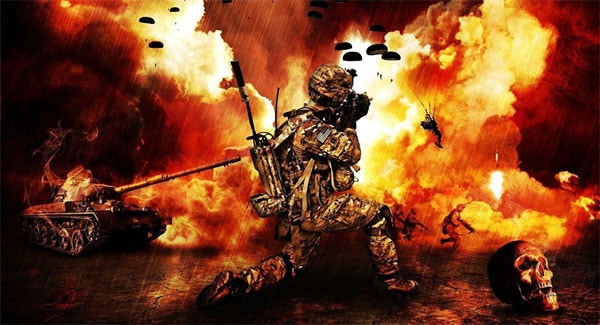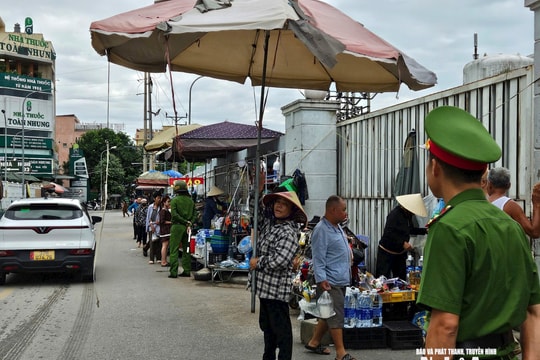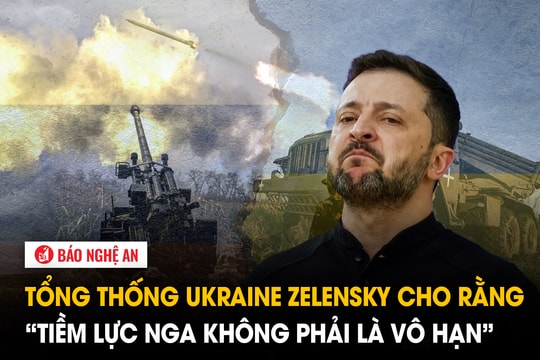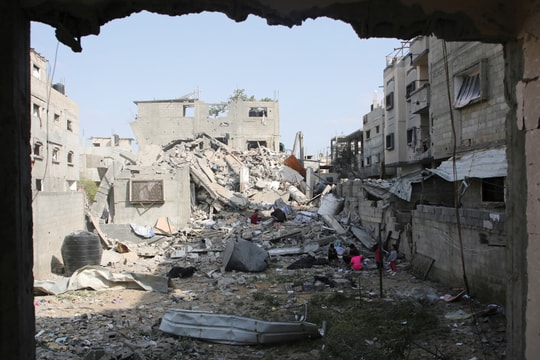Potentially Dangerous Hotspots in 2017
The Council on Foreign Relations, an American think tank, has just released a survey of hot spots that could pose a danger to humanity in the coming year.
Assassination of Russian ambassador risks causing World War 3?
The Council on Foreign Relations (CFR), a group of veteran US politicians, scholars, and experienced media experts, ranked NATO-Russia tensions, the stalemate on the Korean peninsula, and terrorism as the top threats in 2017.
The organization also said that threats also come from the unstable environment in Afghanistan, violence from Türkiye and the Kurds, and the escalating war in Syria. However, these threats to the US are only at a moderate level, CFR commented.
Based on CFR's assessments, commentator Robert Farley of National Interest magazine gave his own comments on threats to global security in 2017.
According to Sputnik, in an article on National Interest, Farley argued that a combination of a series of important factors has created a situation where major powers such as the US, Russia and China face greater instability than at any other time in recent times.
That instability will force leaders to “steer” to prevent dangerous flashpoints from igniting and then escalating into conflict.
 |
| Illustration: Sputnik |
Pyongyang-Washington deadlock
Agreeing with CFR's assessment, Farley wrote, tensions on the Korean peninsula will be one of the most dangerous challenges for the new Trump administration.
Citing Pyongyang's efforts to enhance its nuclear and missile capabilities, the analyst said a hard-line approach in Washington, including consideration of a preemptive strike on North Korea, could suddenly lead to a major war, especially if North Korea is mistakenly perceived to have struck first.
The Obama administration recently decided to deploy a ballistic missile defense system in South Korea, a move that China sees as a threat to its security. If the Trump administration continues the strategy of its predecessor, tensions in the region could escalate.
War in Syria escalates
Syria could become a second flashpoint, Farley said. Although the CFR downgraded the importance of the Syrian conflict to the United States from high to moderate, Farley said the Trump administration is unlikely to want to confront Damascus and Moscow. And the risk of an unexpected conflict that could escalate remains.
The analyst stressed that "while the most dangerous moments have passed, the US and Russian forces continue to be close to each other. Therefore, if one side conducts a campaign and causes damage to the other side's forces like what happened in September (US airstrikes, killing 60 Syrian troops), the pressure to retaliate will be created".
"In addition, the presence of spoilers (terrorist groups and a host of other stakeholders) also complicates things and misunderstandings are more likely to occur," Mr. Farley added.
Cyber War
According to Mr. Farley, the threat of cyber clashes between major powers could become more dangerous. Citing the US accusations of Russian hackers attacking the US presidential election (an accusation denied by both Moscow and US President-elect Donald Trump), this analyst said that US leaders will feel pressure to respond to what they consider provocative actions from China and Russia.
While cyber warfare does not threaten to lead to direct military confrontation between major powers, it could increase general tensions elsewhere.
India-Pakistan tensions escalate
According to Mr. Farley, the border dispute between India and Pakistan in Kashmir is a major threat to the Eurasian region and could escalate. US President-elect Trump’s vague commitments to both sides could lead to misunderstandings. Then, if one side decides to escalate the violence, the US and China could easily be drawn into this conflict.
Baltic Hotspot
Reiterating CFR's assessment that the risk of a Russia-NATO confrontation could erupt due to Russia's assertive stance in Eastern Europe, Mr. Farley said that in the short term, the de-escalation between Moscow and Washington under Trump could lead to a deadly misunderstanding.
US-China tensions
The possibility of a military conflict between the US and China appears to be increasing as the US dispatches warships to the South China Sea, challenging China's unilateral claims in the area.
Last week, Trump accused China of stealing a Chinese unmanned survey ship, angered Beijing when he spoke by phone with Taiwan's leader... The US President-elect's actions have now been met with harsh criticism from Beijing. Therefore, a question has been raised: will Trump's business-like diplomacy lead to a crisis in the relationship between the two countries?
According to Farley, “ambiguity” is a key factor in the threat that regional conflicts could escalate into global conflicts.
According to Vietnamnet
| RELATED NEWS |
|---|








